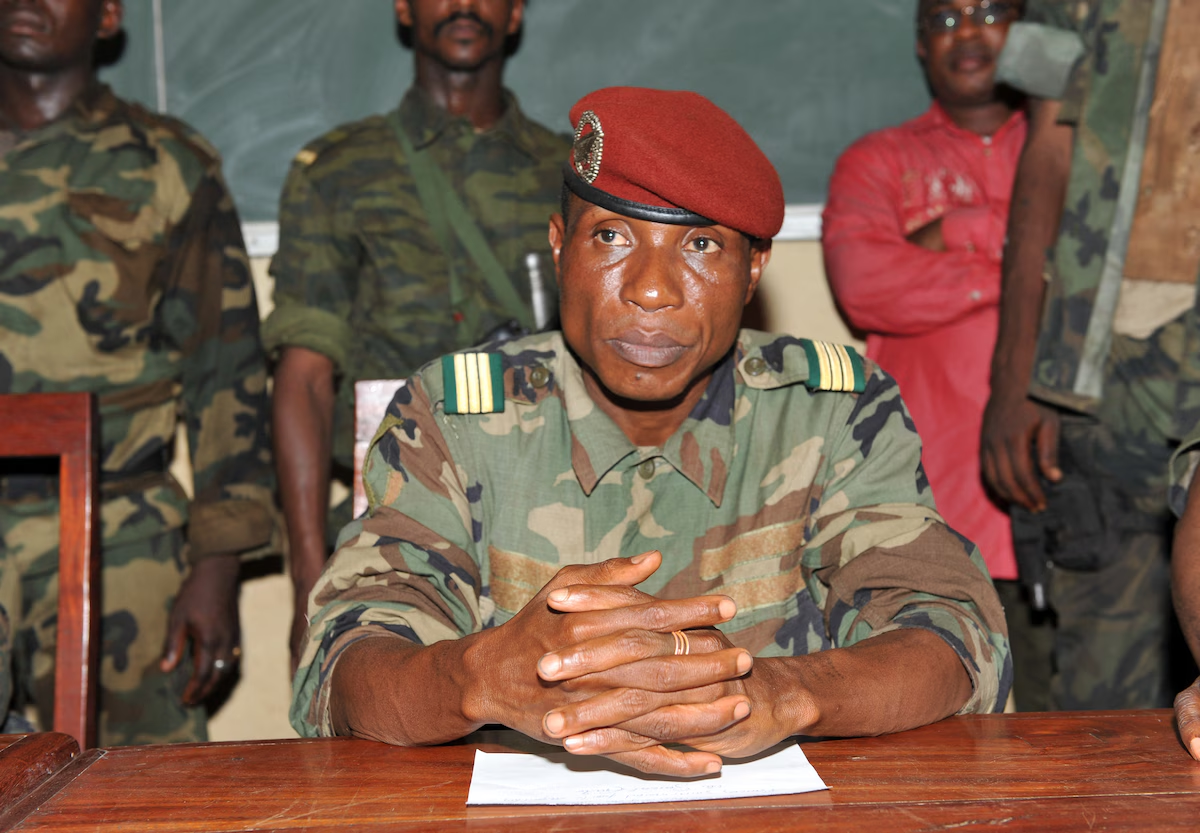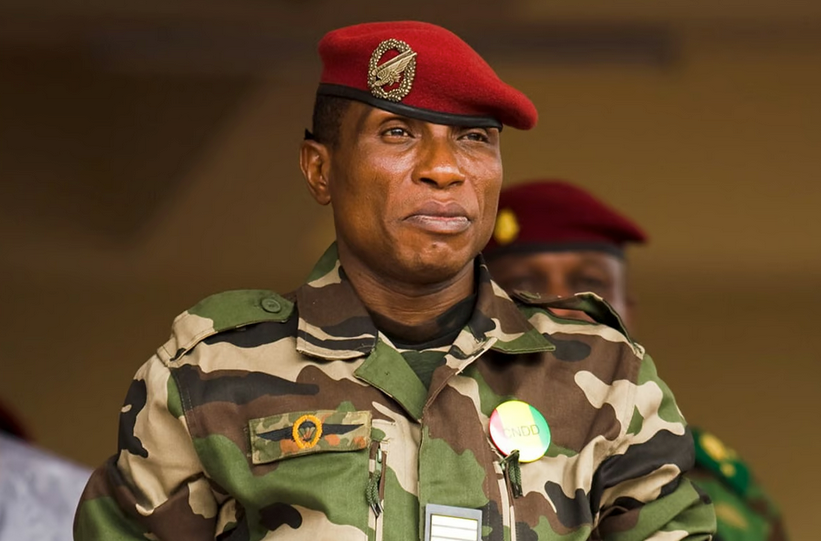A Guinea court has sentenced former junta leader Moussa “Dadis” Camara to 20 years in prison after finding him guilty of crimes against humanity in the 2009 stadium massacre. The military-led attack killed at least 157 people and left dozens of women raped. The verdict, delivered on Wednesday, marks a significant moment in Guinea’s pursuit of justice for this tragic event.

Guinea’s Criminal Court convicted Camara along with seven other high-ranking officials on charges of murder, kidnapping, and rape, which were reclassified as “crimes against humanity” on the day of the ruling. Four other accused individuals were acquitted in the case.
The trial, which began in November 2022, saw more than 100 survivors and victims’ relatives testify. It came after years of pressure from families and activists demanding justice for the massacre. The demonstrators at the stadium in September 2009 were protesting Camara’s plans to run for president when soldiers opened fire on them and committed mass rapes.

Reactions to the verdict were mixed among victims’ families. Some lauded it as long-awaited justice, while others felt the penalties, particularly for Camara, were insufficient given the severity of the crimes. Safiatou Baldé, a 25-year-old relative of one of the victims, expressed disappointment, stating, “The convictions do not match the crimes. Our sisters were raped, our brothers massacred, bodies reported missing.”

Human Rights Watch’s international justice counsel, Tamara Aburamadan, hailed the decision as a clear message that justice is possible for serious crimes in Guinea and elsewhere. Witnesses described horrific scenes during the trial, with many victims shot, crushed, or knifed to death. Some women were dragged from hiding places and gang-raped by uniformed men over several days.
Camara, who had fled into exile after surviving an assassination attempt months after the massacre, returned to Guinea more than a decade later to face trial. He claimed patriotism as his reason for returning and maintained that he was asleep when the massacre unfolded.



